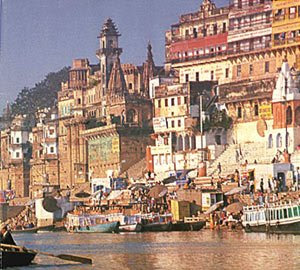Eco Tourism in India - Hill Tourism, Water Falls, Hill Station, rivers and valley, Nature Friendly Tourism, Wildlife in Jungles
The Eco-tourism is One of the lates travel themes, Day –by- day, It is getting popular across the world including the India. The Eco-tourism includes reducing the adverse effects on traditional tourism and natural environment, It is going to enhance the cultural integrity of local people. The main motive of this tour is to preserve the world’s natural and cultural environments.

The Eco-tourism is considered the rapid growing market in the Indian tourism industry. It was estimated that the World Tourism Organization (WTO) shown a report with an annual growth rate of 6% worldwide and representing 8% of the gross domestic product of world, The 11.4% of all consumer spending – Eco-tourism is rapidly growing.

What is Eco-tourism?
Eco-tourism concentrates on the reducing the bad environmental impact as possible and serving the sustain the indigenous populace, thereby motivating wildlife and habitats preservation, with the travel guide on a particular place. The Eco-tourism has been defined by the International Eco-tourism society as a "responsible travel to global natural areas that conserves the environment and develop the well-being of local people."
Goals of Eco-tourism
The main motive of this is to save the environment around you and preserving the natural resource and forest life, It is the prime
objective of eco-tourism. Whether it's about a environmental camp or organizing trekking trips towards the green and inaccessible regions, every one of us must keep in mind not to create anything or disturbance in the life cycle of nature.

Other goals of Eco-tourism include environmental prevention, wildlife saving, cultural, historical, biological and cultural conservation, sustainable development etc. The Eco-tourism also focuses on local human cultures, rare speces, wilderness adventures, volunteering, travel industry growth and learning new ways to live on our vulnerable planet.
Do’s & Don’ts
In the this race of human life and at this time India is gathering momentum in travel industry and related organization's are addressing the requirement of the eco-tourists and promoting the eco-culture in the country. Some basic do's and don'ts are here for the eco-tourism in India:
Don't
- Don't carry any non-degradable litter such as tins, empty bottles, plastic bags on the eco tour. These should not be litter the environment or be buried. And these all must be disposed in municipal dustbins only.

- Observe the sanctity of holy places in india, temples and local cultures.
- Dont make noise pollution. Do not blare aloud tape recorders, radios, or other electronic entertainment equipment in nature resorts, sanctuaries and wildlife parks.
- In case temporary toilets are set-up near campsites, after defecation, cover with mud or sand. Make sure that the spot is at least 30 meters away from the water source.
- Make the people's privacy while taking photographs. You must Ask for prior permission before taking any photograph.
- Do not carry away flora and fauna in the forms of cuttings, seeds or roots. It is illegal, especially in the Himalayas. The environment is really very delicate in this part of region and the bio-diversity of this area has to be protected at all costs.
- Never use pollutants like as chemical detergent, in streams or springs while bathing and washing cloths.
- Do not cut or use wood as fuel for cooking food at the campsite.
- Do not leave cigar, cigarettes or make open fires in the forests.
- Do not consume aerated drinks, drugs, alcohol, or any other intoxicant and throw plastic bottles in the wild.
- You should Respect local, Do not tempt locals peoples, especially kids by offering them foodstuff or sweets.















